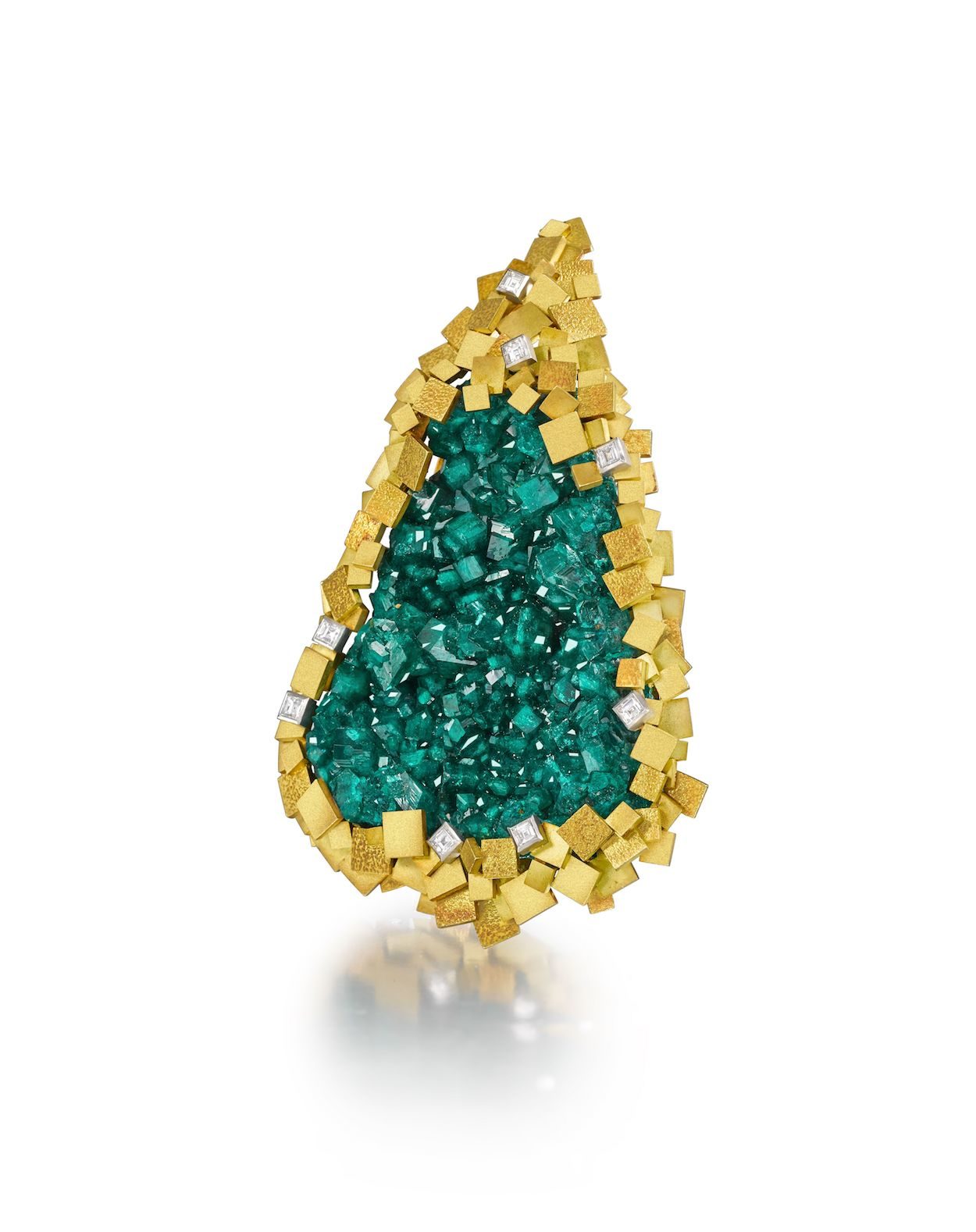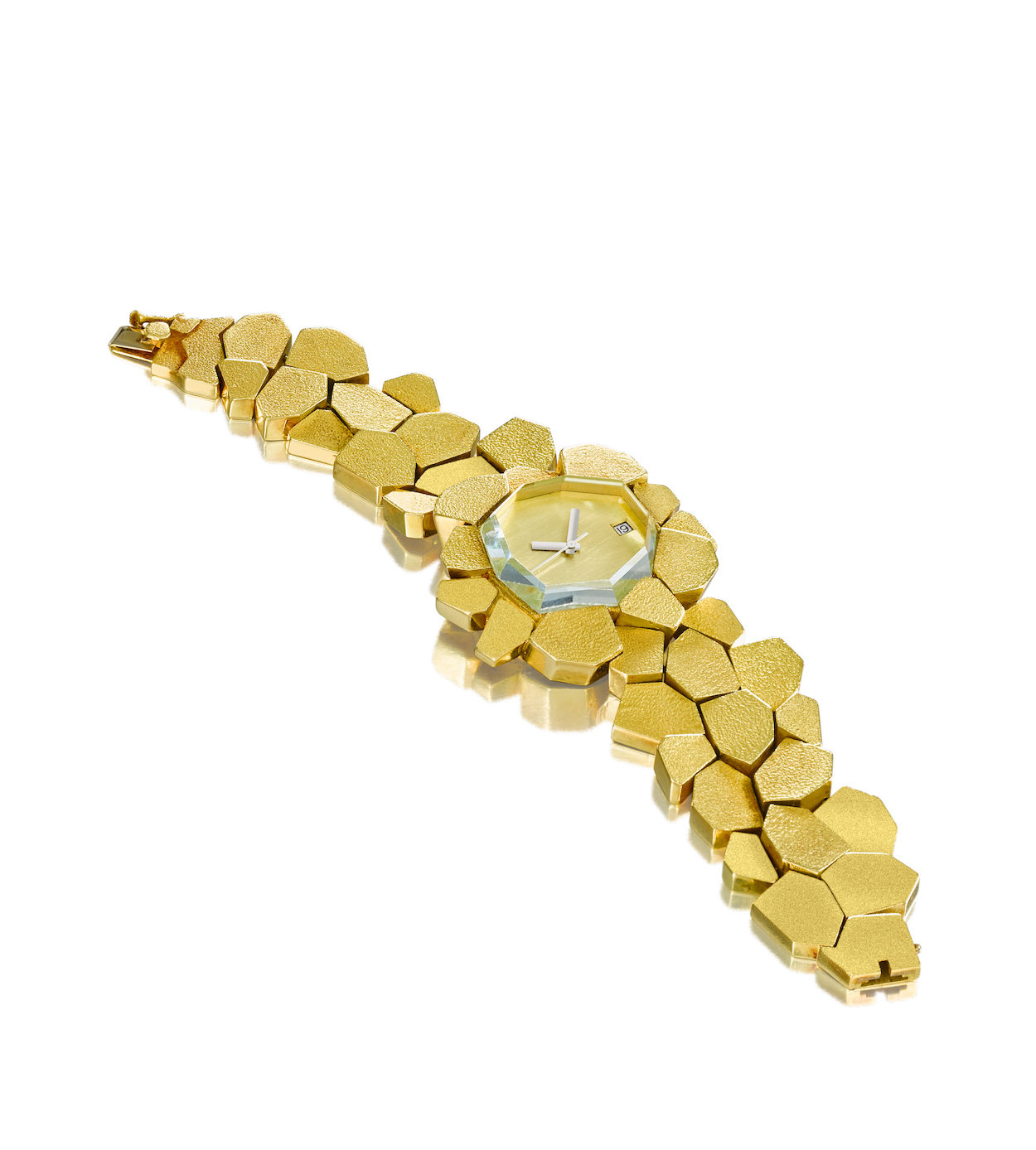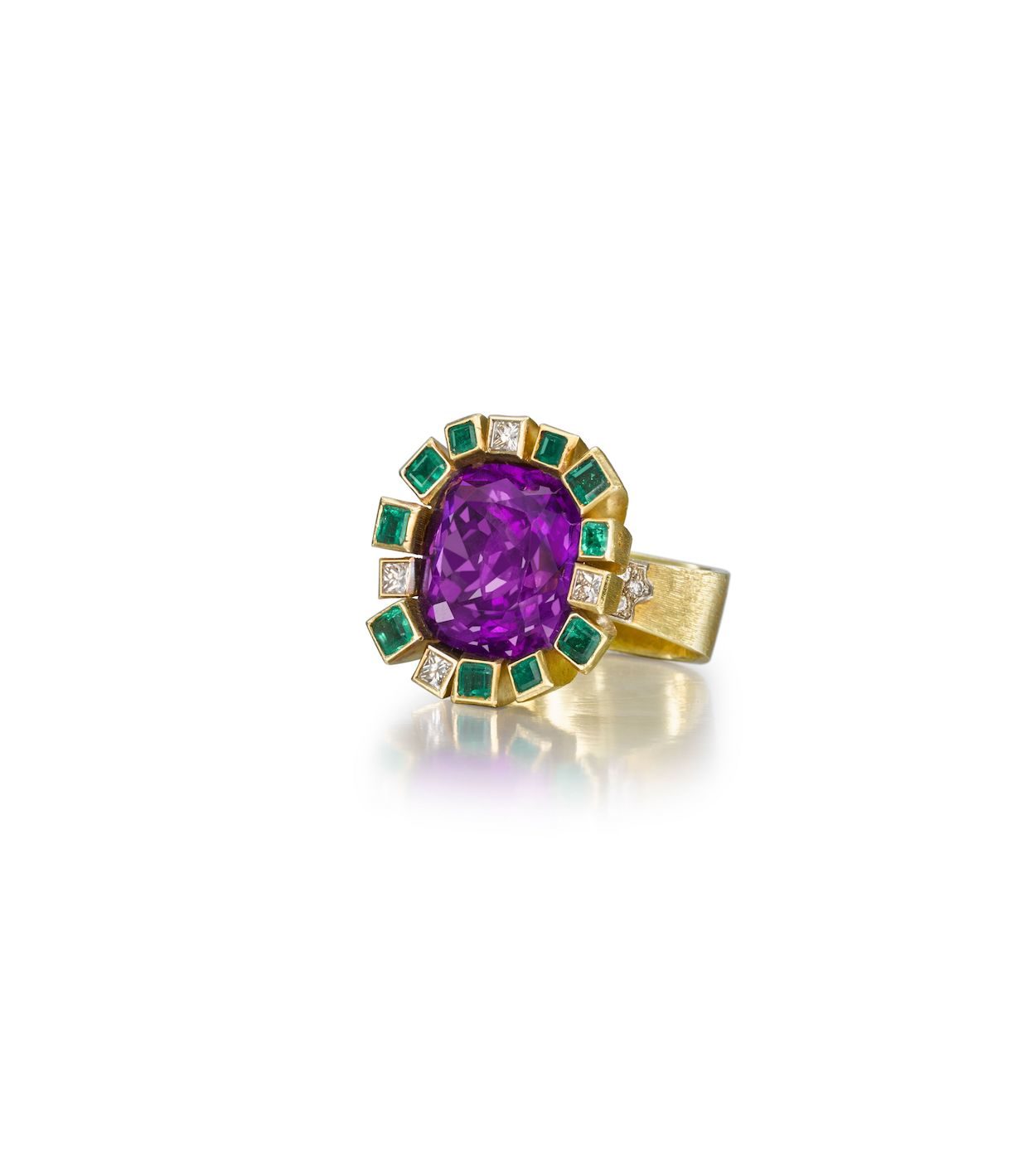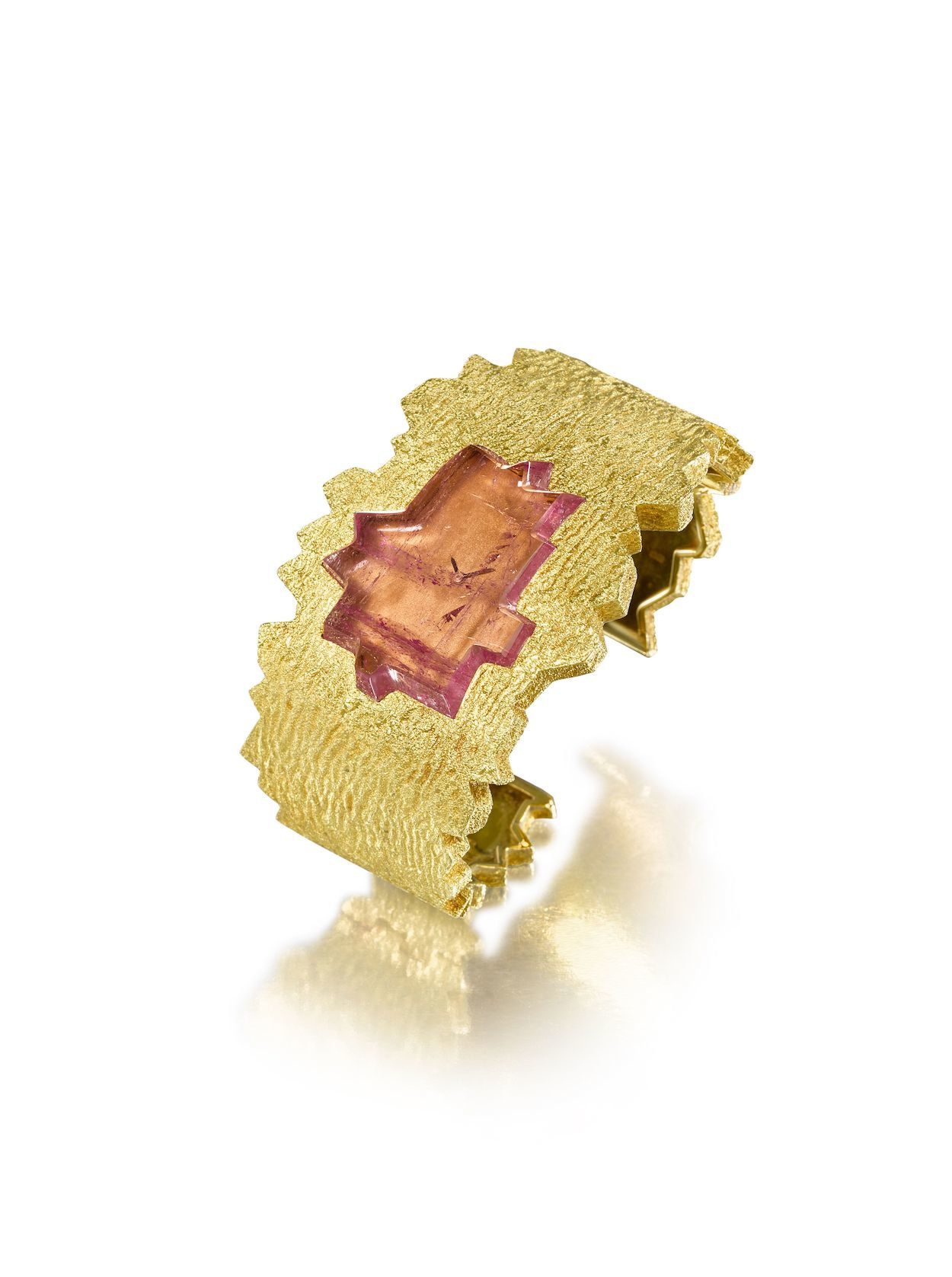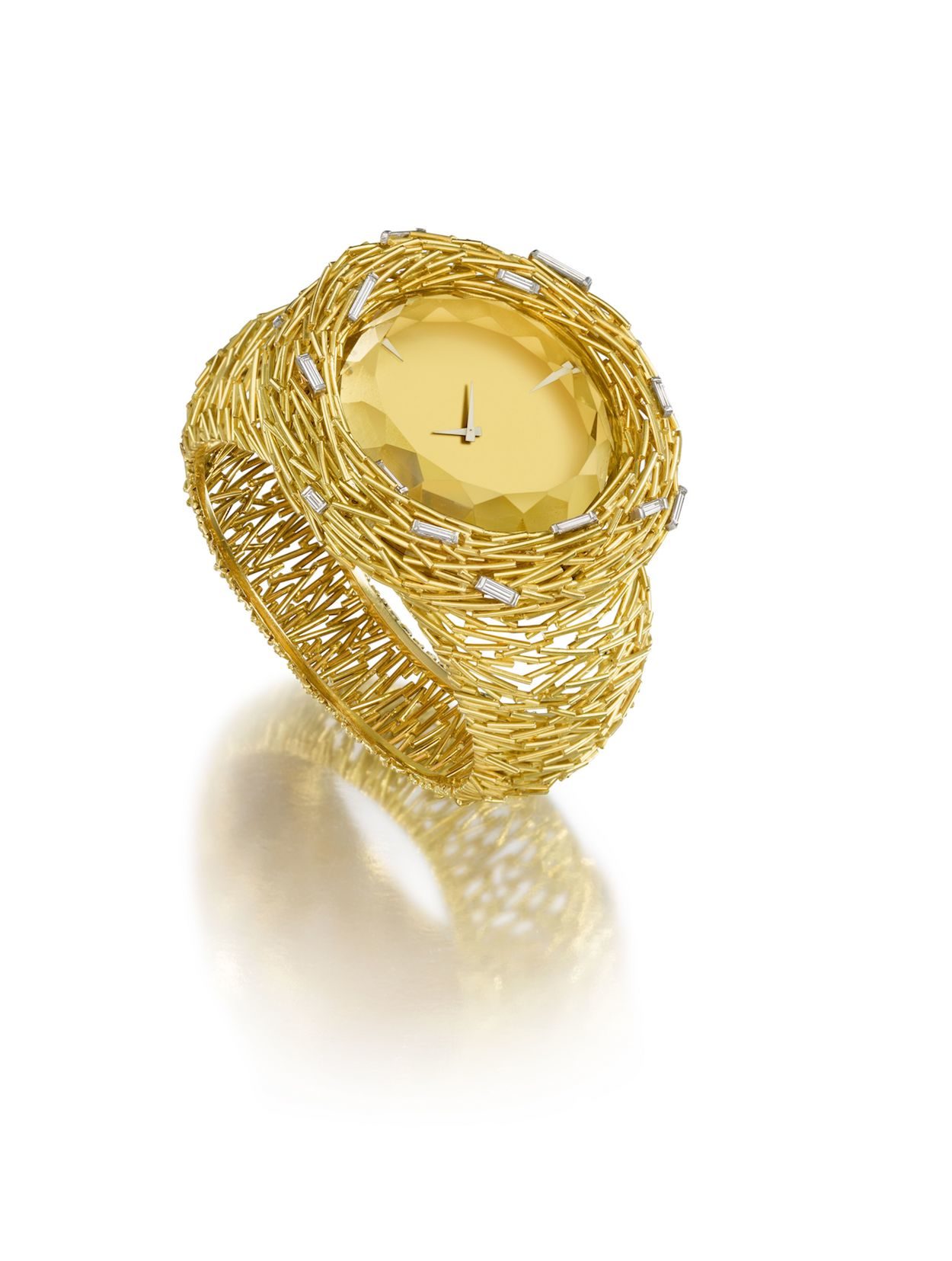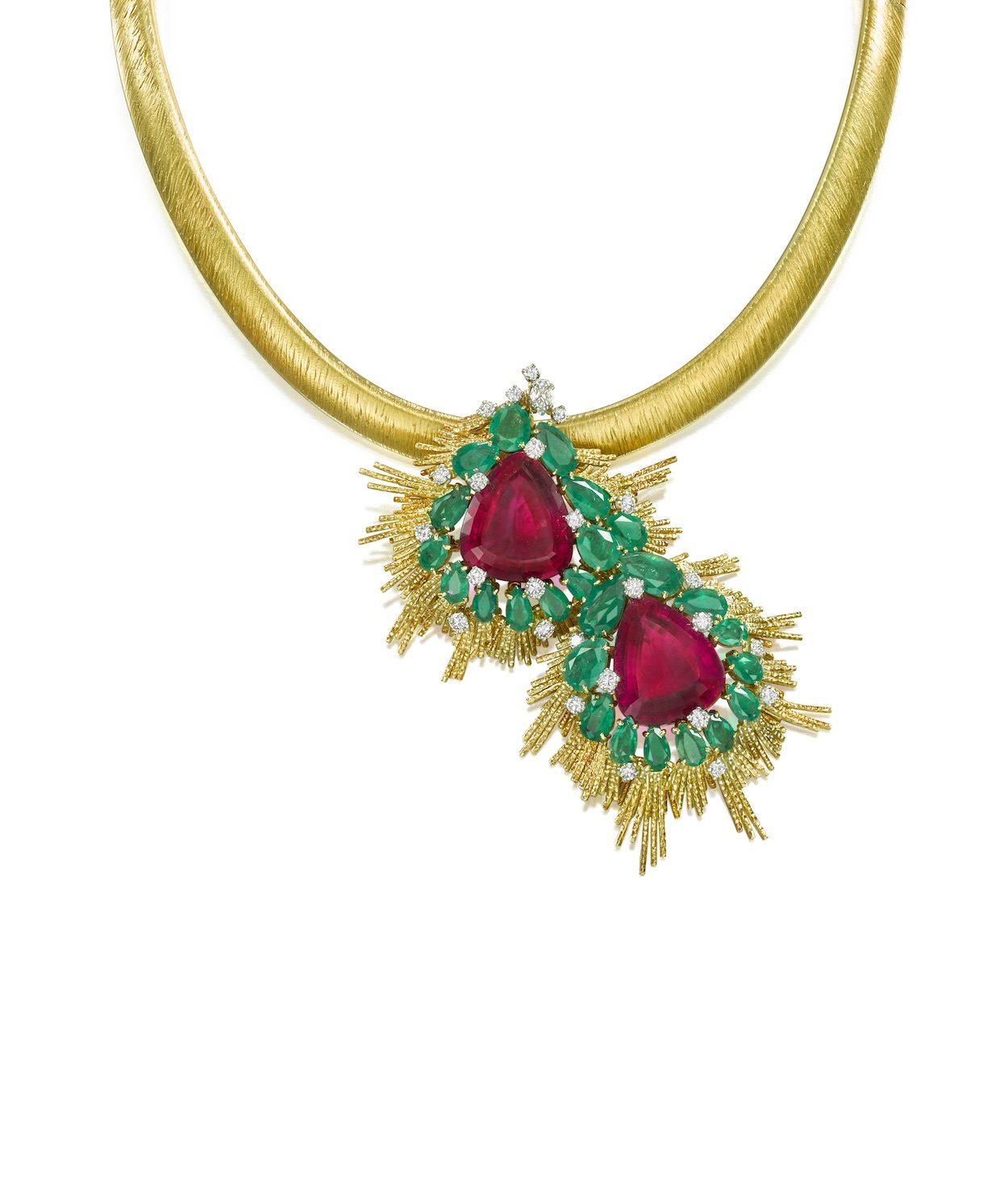Last week, the largest private collection of jewels and watches by Andrew Grima went under the hammer at Bonhams, London. The Sept. 2017 sale included several pieces from the highly desirable “About Time,” an unusual assortment of 55 watches and 30 pieces of jewelry commissioned by Omega in the ’70s. One of the world’s best-known jewelers at the time, he was given enormous creative freedom, able to take a brand famous for going to the moon to an even higher level of inventiveness. Here, Chris Benz, the creative director at Bill Blass, explains why the Andrew Grima jewelry is still widely respected and fiercely collected today.
The Andrew Grima pieces have such a resonance for me as a designer because they are a poignant combination of what design is about today—namely, the reimagination of past concepts, the precious elevation of presumably benign or everyday concepts, and the upending of the collective assumptions of luxury.
Particularly in the context of the seventies, when a staid decorum was beginning to shift, these brash, gilded organic shapes must have felt especially modern, and they continue to feel timeless today. As with any designed object, in order to cross the finish line, a designer’s concept must be fully realized and exist only within the confines of a small box of variation. The language with which these pieces are imagined is unique, and lives outside of one’s traditional idea of fine jewelry.
Texture, silhouette, even the crisp angles of the linked chains go against traditional concepts of refined luxury. The effortless combination of organic mineral textures, combined with semiprecious stone details, is visually arresting. Their impact is of particular note when you realize that some of our modern arbiters of taste—Marc Jacobs and Miuccia Prada among them—are such dedicated collectors.
This article appeared in the October/November issue of Watch Journal.
(Photos: courtesy Bonhams)
